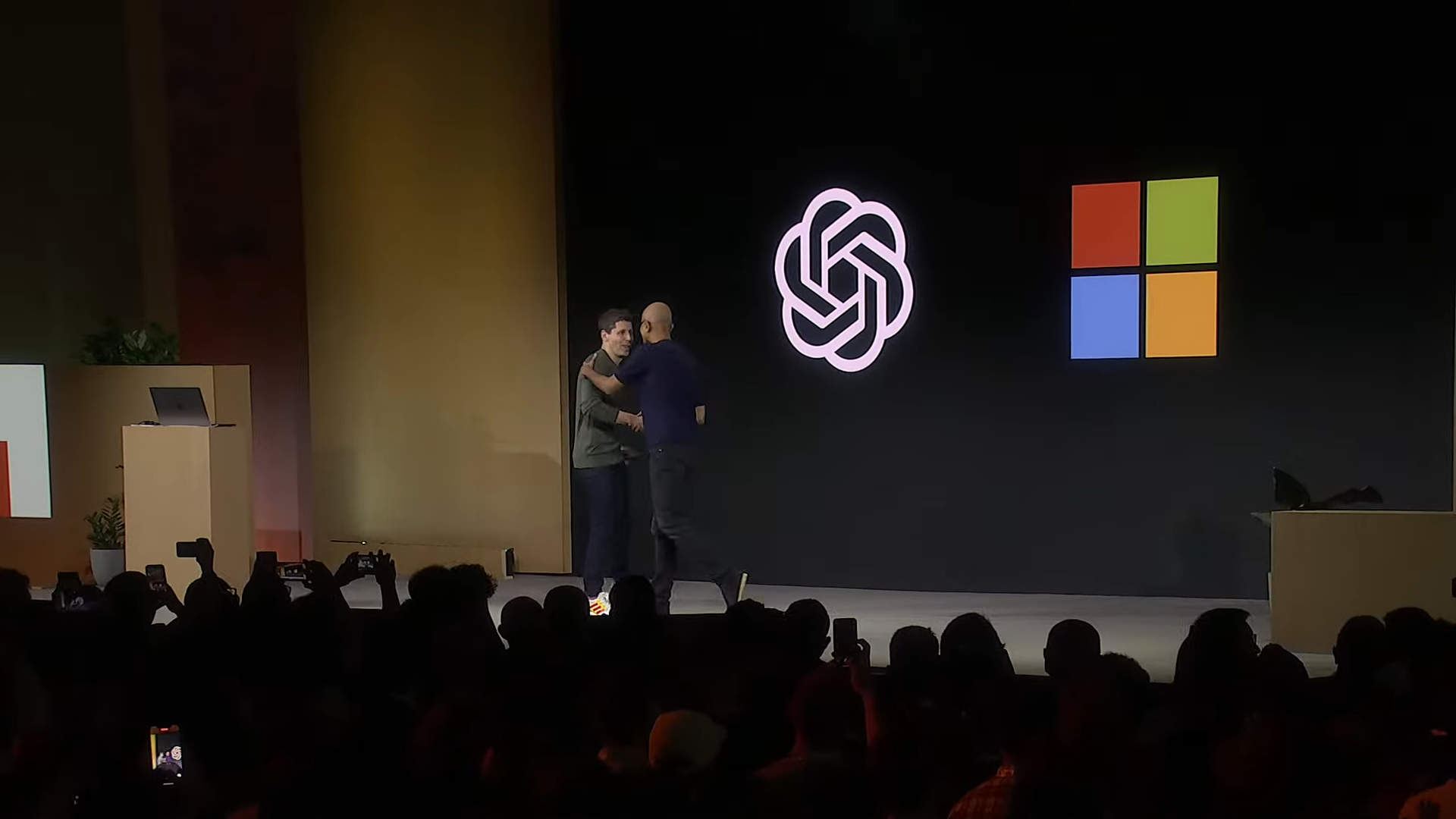Microsoft CEO Satya Nadella does not seek further control over OpenAI

Microsoft CEO Satya Nadella does not seek further control over OpenAI, according to an interview at the World Economic Forum in Davos.
Nadella says Microsoft just wants "good stability" and is happy with the current structure as OpenAI's largest investor. European and British regulators have recently investigated the close ties between the two companies. Microsoft owns 49 percent of OpenAI.
Microsoft has invested some $13 billion in OpenAI. After the temporary removal of OpenAI CEO Sam Altman in November, Microsoft CEO Nadella personally lobbied for his reinstatement.
Microsoft's interference in OpenAI's policy has triggered antitrust investigations in the EU and the UK. The US Federal Trade Commission (FTC) is also investigating, according to Bloomberg.
Nadella says it is "inevitable" that regulators will scrutinize the activities of a company the size of Microsoft.
According to Nadella, Microsoft is not seeking a seat on the board of OpenAI. Ultimately, Microsoft wants new entrants and healthy competition.
The Microsoft CEO also emphasized that his company is not overly dependent on OpenAI. Microsoft provides OpenAI with "key parts of the technology it needs to create its products," by which he likely means the computing power for AI training, and conducts AI research. According to Nadella, Microsoft controls its destiny.
Microsoft is dependent on GPT-4
But Microsoft has yet to prove this. The company has had notable successes, such as the small and efficient Phi-2 language model.
But without OpenAI, Microsoft would not be able to keep up with competitors like Google or Meta when it comes to language models. A proprietary language model built by Microsoft that could compete with GPT-4 is not on the horizon.
This creates a competitive situation between OpenAI and Microsoft, as Microsoft is trying to sell OpenAI technology in a different UI to the same enterprise customers. The consumer products Copilot and ChatGPT are also in direct competition, but both run on OpenAI models.
Microsoft even provides free access to GPT-4 and DALL-E 3 through some of its products, the same models that OpenAI charges for. GPT-4 is also the driving force behind all the other AI capabilities that Microsoft is integrating into all corners of its Windows and Office ecosystem.
Even worse, most of Microsoft's OpenAI implementations are inferior to OpenAI's products and less successful, e.g., Copilot vs. ChatGPT or Bing Image Creator vs. DALL-E 3.
Nadella also sees growing opportunities for Microsoft in hardware as the use of AI increases. It is possible that Microsoft could ride the second XR wave, driven primarily by Apple, and combine OpenAI AI with its HoloLens infrastructure or successor projects, for example. However, Microsoft has recently scaled back its mixed reality investments.
Although Microsoft overtook Apple as the most valuable company last week, Nadella does not put much stock in that. In the technology sector, the share price says little about the future. The key is not to rest on the laurels of the past, but to face the challenges of the future, Nadella says.
AI News Without the Hype – Curated by Humans
As a THE DECODER subscriber, you get ad-free reading, our weekly AI newsletter, the exclusive "AI Radar" Frontier Report 6× per year, access to comments, and our complete archive.
Subscribe nowAI news without the hype
Curated by humans.
- Over 20 percent launch discount.
- Read without distractions – no Google ads.
- Access to comments and community discussions.
- Weekly AI newsletter.
- 6 times a year: “AI Radar” – deep dives on key AI topics.
- Up to 25 % off on KI Pro online events.
- Access to our full ten-year archive.
- Get the latest AI news from The Decoder.